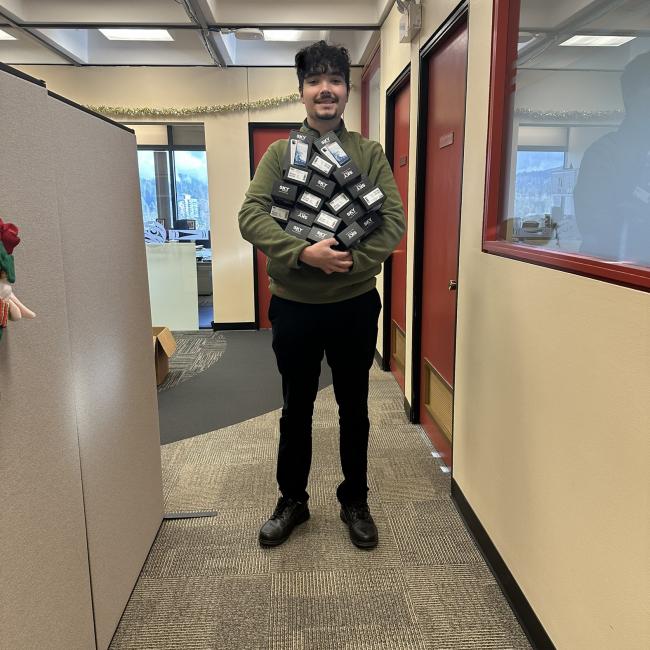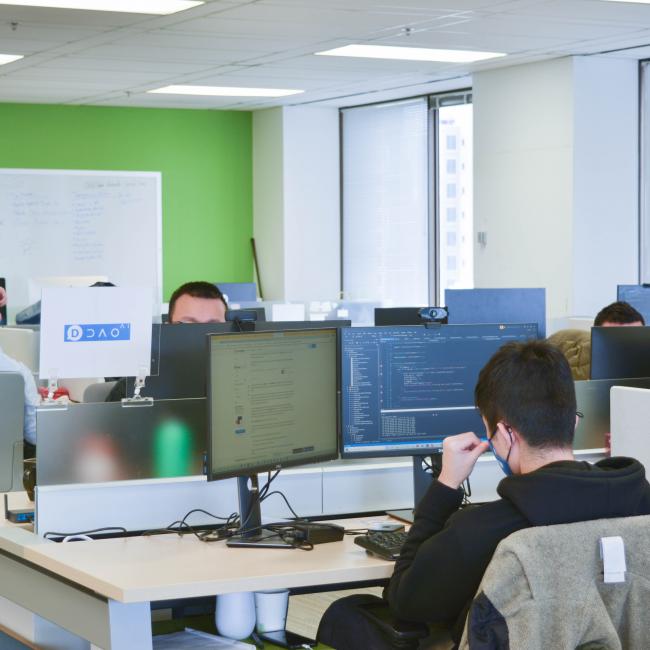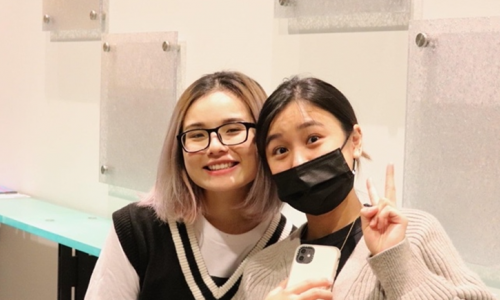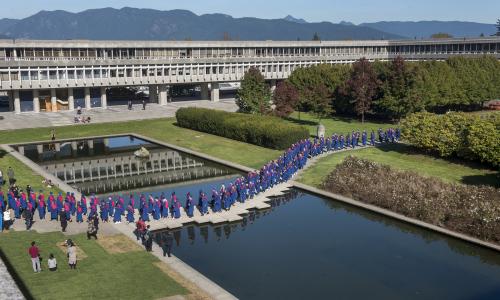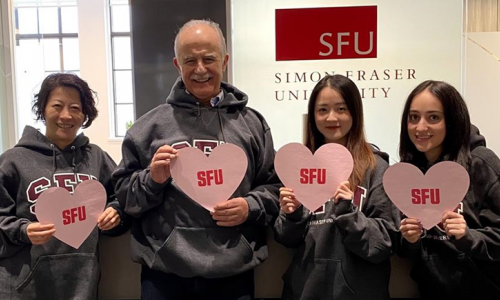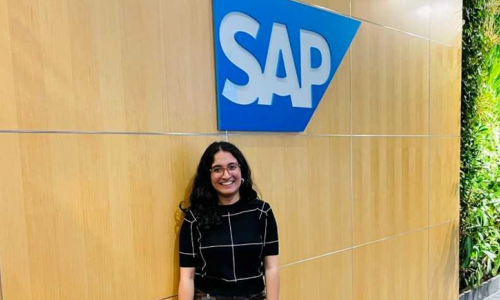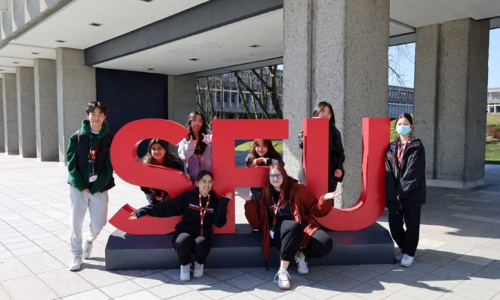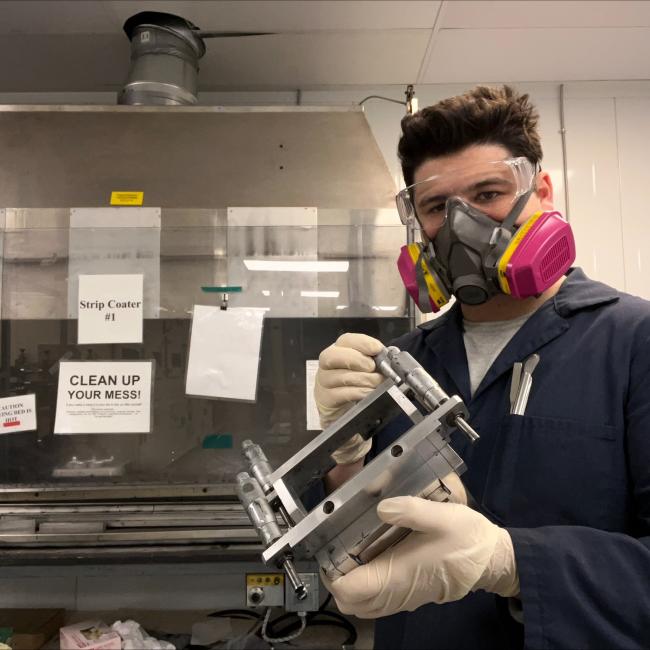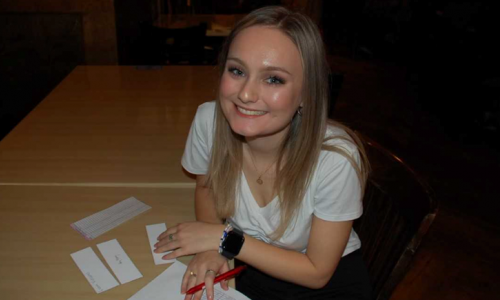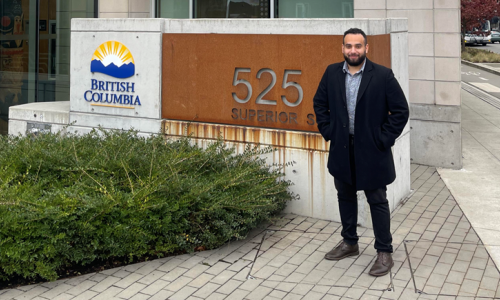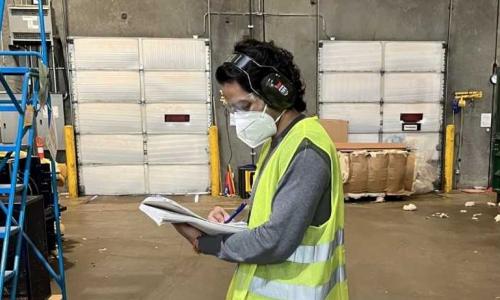Meet Crystal Zhang, a third-year accounting major at SFU. Her 8-month co-op at Bench Accounting gave her insights into office socializing and achieving goals. Check out her top tips!
Workplace Success
Workplace Success, as shown in the following stories, is defined by your productivity, the quality of your work and creating lasting impressions with supervisors and mentors. Scroll through and learn how you can manifest success in the workplace; the following authors have shared their tips and strategies on making the most out of your co-ops, how to effectively communicate what you need, and various tools you can use to assist your workflow.
Six networking tips that can help build your professional network while navigating new environments.
I learned many things in my co-op journey but some of the most important lessons that I learnt came from those working alongside me. Here are a few of those things that I learned from others, shared with you.
Ever wonder how to get the most out of Excel? Tools like Power Pivot, Power Query, and Power BI helped me see how accessible data analysis is for anyone from industry professionals to beginners.
Work becomes easy and enjoyable when you are in the proper mindset – a mindset fueled by the belief that you can do it if you wish to. Meet Bulla Islam, a fourth-year undergraduate student reflecting on his experience with BlueShore Financial as he nears his time at SFU. Get insight on how to navigate yourself within a job setting, and steps you can take to harness a ‘can-do’ attitude.
Like many Communications students, I came into the School of Communication very interested in media; both studying it and working in it. I found it harder and harder to pinpoint where I could fit into it professionally as I learned more about it. What do you do when you’re interested in media, but not sure you want to work directly in media?
I began working as a part-time Co-op student during the last semester, while also pursuing full-time studies? Yes, you heard that right, part-time Co-op and full-time studies. Was it a challenge for me? Absolutely. Did I feel stressed out? Definitely. Did I manage to succeed by the end of the term? Surprisingly, I did, and it turned out to be my most successful term at SFU, to be honest.
Yes, you read the right, I did seven Co-op terms while completing my Communication degree. I’m a firm believer of trying as much as I can during my undergrad, and I did exactly that. Starting off with working at a non-profit in events and social media, I then transitioned to a university in Kenya doing content development and research, a corporate position in Calgary, multiple roles at a digital marketing agency, working at a bank, and now closing my Co-op journey in the public sector. Being extremely fortunate to be able to try many Co-op positions, I’d like to share what I’ve learned from 28 months of working in communications.
A few days before the Christmas break of 2021, I received an email that would jumpstart my Co-op journey leading me into new experiences, connections, and so much more! I'm not sure if many people would be able to say this, but wow, am I ever happy that I checked my email that day.
Bzzt! You're staring down at the offer letter you've received from your dream company. Usually, this is where the chapter ends or the curtains fall on a very happy ending. No one prepares you for what comes next and if you're anything like me (an international student), you're even further removed from any immediate sage advice from your loved ones. Worry not! As someone who steered her own ship amidst stormy seas, I'm here to offer some do’s and don'ts that might just save you.
When promoting events and news on social media on behalf of a club, service, or business, the main goal is to get as many eyes as possible on the content. One of my tasks in my 8-month Co-op position was to post updates on their social media accounts, which includes job postings, upcoming events, and special announcements. Over these months, I was able to find useful strategies and tools to help me manage these profiles effectively and efficiently.
Coming into this Co-op position as an Outreach, Promotion, and Engagement Coordinator for SFU’s School of Communication, I was not expecting to gain any sort of event planning experience. Creating an event for our incoming students for Fall 2023, was a brand-new concept that flourished this semester.
Did I exaggerate my capabilities? Will they think I’m a disappointing hire? These were some of the questions that plagued my mind when I first stepped into the office. The fears worsened as I started to learn about my expected workflow, and I wondered if I was out of my depth.
This article is my take on why somebody would pursue a career in sales. I have never done sales in my life, and I like to take on new challenges. Therefore, it allows me to elaborate on the skills I have learned throughout my journey.
Meet John Owusu, an SFU Master of Economics Co-op student. In this quick Q&A, John shares a bit about his co-op experience. Keep on reading as John shares how his mindset helped him at his position, what his schedule was like and how he overcame feeling nervous at the workplace.
Working in a full-time position in an office involves a lot of online communication and file management, thus staying organized is the key to success. In my job specifically, my main tasks were replying to emails and messages on social media as well as posting on the platforms, creating a monthly newsletter, designing promotional graphics, and updating webpages. But no matter the occupation, whether you’re a worker or a student, these tips may help you stay organized and be effective.
Unlike designing a magazine cover or a poster that remains on the shelf for a period of time, social media content elevates the brand with a single post and catches the sight of the audience in less than a second. When the design space is just small square, there is only so much you can do, so with that in mind, here are five graphic design tips to make sure your branded social media posts are appealing and maintain a lasting impression about your brand
Knowing what I wanted to specialize in allowed me to start making plans for my first Co-op term. In all honesty, getting your first Co-op term can be exciting and intimidating. However, with a little planning and effort, you can position yourself for success.
Meet Danielle Fleck, the Senior Manager of Development Events at Fraser Institute. In this quick Q&A, Danielle discusses the benefits of having an intern at the organization, the growth of the interns they hired and how the organization made the interns feel comfortable in their position.
I was the only communication person in my department; there were no experienced communicators to work closely with and learn from. I thought this situation would limit my room to learn, but surprisingly I gained valuable experiences and exercised skills that I didn't expect.
Meet Anik Ahmed, an SFU Master of Political Science Co-op student. In this quick Q&A, Anik shares a bit about his co-op experience. Keep on reading as Anik shares his co-op's workplace culture, his employer and how he got the unique experience of travelling to Victoria.
Public Speaking is challenging, and I applaud anyone who can speak in front of a crowd because it takes a lot of courage. These tips will help when speaking to audiences to sell yourself as a speaker and increase your comfort level and confidence.
Meet George Gayed, a Political Science student minoring in international studies with a concentration of international security and conflict. In this quick Q&A, George discusses his work in his different positions, goes over highlights and the most valuable things he has learned.
Meet Giulia Crovini, an Economics Co-op student. In this quick Q&A, Giulia shares about her co-op experience. Specifically, she highlights the many benefits of applying for positions outside of your faculty.
In the sentences that follow, you will learn five very, very important tips that, if heeded, will prepare you for a career in technical writing. If these tips don’t quite have the effect I’m suggesting, it’s not my fault–you probably did something wrong.
Meet Ditij Beladiya, a student completing an Honours undergraduate degree with a Major in Economics, Concentration in Economic Data Analytics and Minor in Political Science. In this quick Q&A, Ditij shares about his co-op experience. Read about his interview, his day to day tasks and what he has learned.














